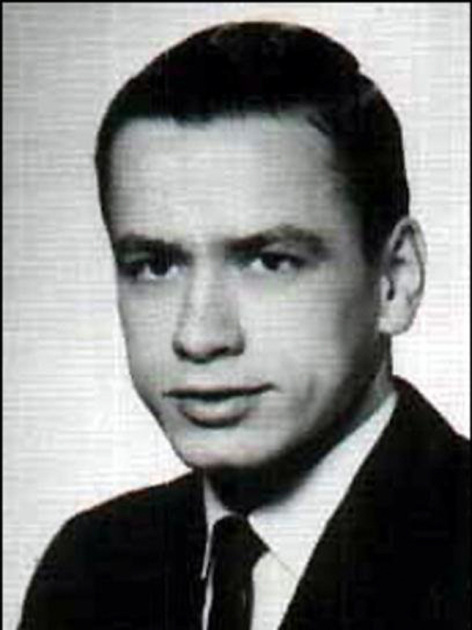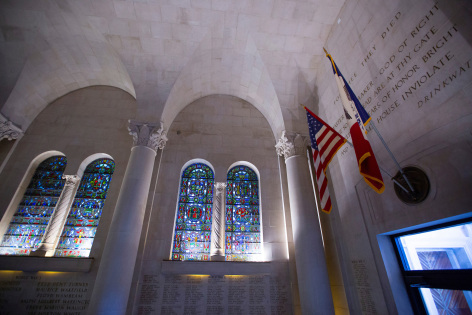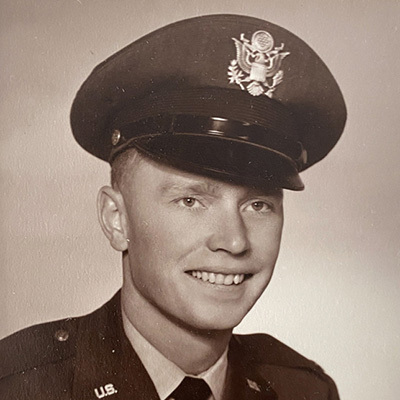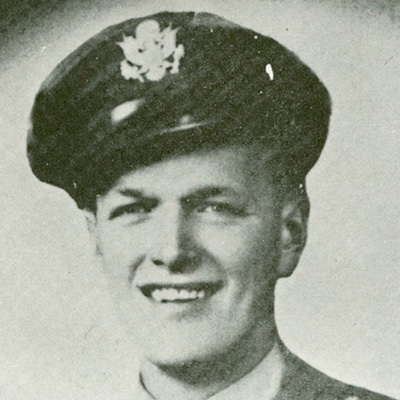The following is an edited excerpt of the life narrative that will be read during the 2024 Gold Star Hall Ceremony.

James Herrick, Jr.
On Oct. 27, 1969, James Wayne Herrick, Jr. was piloting a Douglas A-1 Skyraider on a “secret” reconnaissance mission in Laos near the North Vietnam border when his aircraft went missing.
The mission was designed to survey a region in Laos called the “Bird's Nest,” a canyon that was particularly difficult to navigate. The only way pilots were able to successfully descend into the area was by circling like a bird, hence the name “Bird’s Nest.”
Weather made the mission even more challenging. The lead pilot made circling maneuvers to safely ascend out of the area and instructed Herrick to do the same. Herrick acknowledged this transmission, but shortly afterwards, the flight leader lost radio contact with him. Once above the clouds, the lead pilot could not place eyes on Herrick’s plane.
The lead pilot again descended through clouds back into the area and searched for Herrick, but when the plane’s fuel ran low, the lead pilot had to call off the search. Herrick’s aircraft failed to return to base, no parachute was observed, and no rescue beeper signals were received in the area of the aircraft's supposed loss. Three days later, another pilot on a mission in the same area reported seeing aircraft wreckage and a burned area that had not been there five days earlier.
Herrick was never seen again, and it was never confirmed whether the plane was shot down, experienced mechanical difficulties or misjudged the canyon wall. The day of his loss was one day before his 25th birthday and one week before he was to return home on leave.
After his passing, Herrick was awarded the Purple Heart for his bravery and devotion to our country and the cause in South Vietnam. He was promoted to the rank of captain during the period he was maintained as missing in action. On Nov. 21, 1977, he was declared killed in action.
Childhood illness
Herrick and his eight siblings grew up in the Guthrie County town of Panora. As a child, Herrick was diagnosed with polio and spent months in the hospital. At the time of his diagnosis in 1952, only one in 10 fully paralyzed children survived their polio diagnosis – and it was even more rare for a child to regain full body movement.
As part of his recovery, Herrick’s mother filled sandbags for him to use as weights as part of his physical therapy. Eventually, after years of hard work, he regained full mobility and strength.
In 1967, Herrick graduated from Iowa State University with a degree in animal husbandry and finished his ROTC program with the rank of second lieutenant. Following graduation, Herrick was sent to Texas for jet pilot training. While he was there, he fell in love with a woman named Penny who absolutely stole his heart. Herrick gave her a promise ring as a placeholder for the engagement ring he intended to give her when he returned from his tour of duty.
After his training, Herrick graduated high enough to have his choice of assignment, so he chose to fly the Douglas Skyraider. After further training in Florida and Washington, he was sent to Thailand to begin his service in May 1969. Herrick spent much of his time in Thailand on edge. It was difficult to know who to trust because the enemy could pretend to be friendly villagers to gain the soldiers’ confidence – and then attack when their guard was down.
Herrick was a member of the 602nd Special Operations Squadron, Nakhom Phenom, Royal Air Force Base in Thailand. During his time in Thailand, Herrick flew many missions, including “Sandy” missions to rescue endangered servicemen.
On the day Herrick went missing, his mother uncharacteristically blacked out for a moment. She instinctively knew that something was seriously wrong with her son before anyone confirmed her beliefs. Herrick’s love, Penny, never received the engagement ring Herrick had promised. He was declared “missing” and no evidence of his survival or death were ever discovered.
Herrick’s family remembers him as a handsome, quiet and kind young man with a heart full of love for animals. They say that given the chance, he would’ve done anything for anyone.
James Wayne Herrick, Jr. is memorialized at the Courts of the Missing at the National Memorial Cemetery of the Pacific in Honolulu and his name is inscribed on the Vietnam Veterans Memorial in Washington, D.C.
Contacts
Megan Moore, Memorial Union, moorem@iastate.edu, 515-294-2549
Angie Hunt, News Service, amhunt@iastate.edu, 515-294-8986
Gold Star Hall Ceremony

- Memorial Union Durham Great Hall
- 4:15 p.m. Wednesday, Nov. 13
Click on the images below to read about the other honorees.
Max Harvey Collins
Air Force 2nd Lt. Max Harvey Collins died when his aircraft crashed on takeoff during the Korean War.

